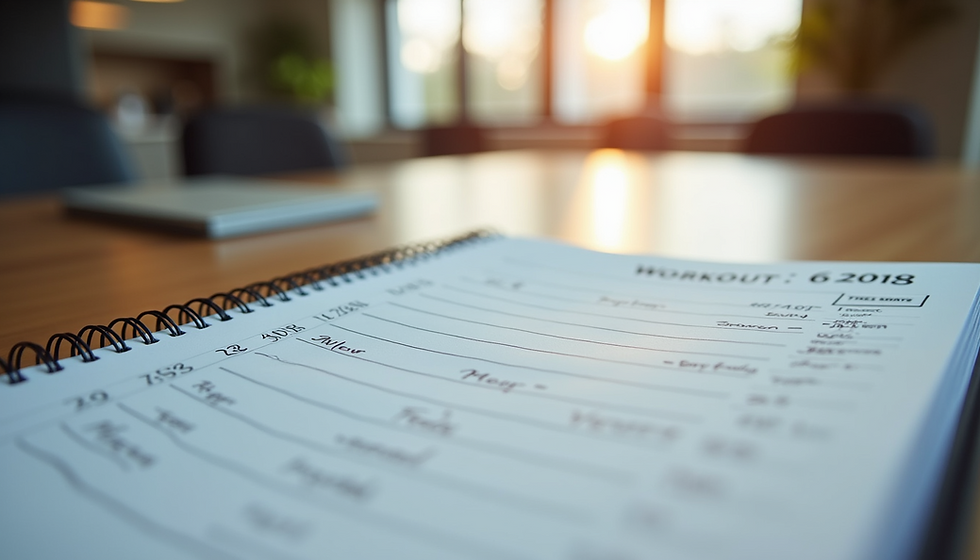What Causes "Junk Food" Cravings?
- peggie05
- Mar 7, 2021
- 3 min read

By Coach Sam
We all know that sleep is an important part of achieving results during your transformation challenge as well as promoting optimal health and wellness. Still, a significant majority of the population fails to get enough quality sleep each night.
Sleep deprivation is known to lead to a number of deleterious effects on the body and mind, including:
Decreased energy expenditure
Reduced insulin sensitivity
Impaired energy metabolism
Reduced athletic performance
Decreased recovery
Impaired muscle growth
Accelerated muscle breakdown
Lethargy
Mental distress
Poorer mood
Impaired decision-making
Chronic sleep deprivation is also known to lead to increased risk of developing certain lifestyle disorders including obesity, type 2 diabetes, high blood pressure, heart disease and stroke.
Today, we take a closer look at how lack of sleep affects junk food cravings.
The Link Between Sleep Deprivation and Increased Appetite
In addition to the litany of unwanted side effects listed above, not getting enough sleep is also known to lead weight (fat) gain.
This is due to a combination of reduced physical activity the day after a night of sleep deprivation as well as impaired energy metabolism and increased calorie intake.
Regarding that last point, sleep deprivation has been found to increase feelings of hunger and reduce feelings of satiety.[1,2,3] This is a result of alterations to important hunger and satiety hormones, including ghrelin and leptin.
As if that wasn’t bad enough, not getting enough sleep also increases your cravings for high-calorie, salty, fatty foods.[3] The combination of higher calorie intakes with reduced physical activity is the perfect recipe for unwanted weight gain.
Moreover, the longer individuals are deprived of sleep, the worse these cravings can become as do the impairments to energy metabolism, muscle recovery, insulin sensitivity, etc.
Additional research from 2019 found that the olfactory system (sense of smell) goes into overdrive following a single night of sleep deprivation and it leads to our craving more energy-dense foods.[6]
This may explain why we crave things like bacon, cheese fries, pizza, pancakes, etc. when we’re tired.
The same study also found that sleep deprived individuals are more likely to snack throughout the day, which can also contribute to overeating.
Takeaway
At the end of the day, if you want to have more energy, perform better, and have an easier time sticking to your diet, then you need to make sure you get a good night’s sleep everynight.
Not only will you make better food choices during the day, but you’ll also have more energy to crush your workouts.
If you need help getting to sleep at night, consider trying a few of these tips:
Set a bedtime (and stick to it)
Avoid caffeine and alcohol before bed
Avoid blue light 2 hours before bed (tablet, laptops, tv, smartphones, etc.)
Use your bedroom only for sleep and sex
Keep your room cool and dark
Wear loose, comfortable clothing to sleep in
Meditate/pray
Journal
Read
Have a cup of herbal tea
Stretch/light yoga
You can also try a nighttime relaxation and recovery aid, such as Men’s and Women’s sleep formulas Recharge PM or Beauty Dream PM.
These products contain natural, non-habit forming ingredients that may help reduce feelings of stress and anxiety while promoting feelings of calm and relaxation, allowing you to achieve deep, restorative sleep each and every night.
References
Schmid SM, Hallschmid M, Jauch-Chara K, Born J, Schultes B. A single night of sleep deprivation increases ghrelin levels and feelings of hunger in normal-weight healthy men. J Sleep Res. 2008 Sep;17(3):331-4. doi: 10.1111/j.1365-2869.2008.00662.x. Epub 2008 Jun 28. PMID: 18564298.
St-Onge MP. The role of sleep duration in the regulation of energy balance: effects on energy intakes and expenditure. J Clin Sleep Med. 2013 Jan 15;9(1):73-80. doi: 10.5664/jcsm.2348. PMID: 23319909; PMCID: PMC3525993.
Sebastian M. Schmid, Manfred Hallschmid, Kamila Jauch-Chara, Nadine Bandorf, Jan Born, Bernd Schultes, Sleep Loss Alters Basal Metabolic Hormone Secretion and Modulates the Dynamic Counterregulatory Response to Hypoglycemia, The Journal of Clinical Endocrinology & Metabolism, Volume 92, Issue 8, 1 August 2007, Pages 3044–3051, https://doi.org/10.1210/jc.2006-2788
De Leon, A. A., & Hanlon, E. C. (2020). Chapter 23 - Impact of Sleep Restriction on Food Intake and Food Choice (R. R. Watson & V. R. B. T.-N. M. of S. Preedy (eds.); pp. 217–228). Academic Press. https://doi.org/https://doi.org/10.1016/B978-0-12-816658-1.00023-5
Bhutani, S., Howard, J. D., Reynolds, R., Zee, P. C., Gottfried, J., & Kahnt, T. (2019). Olfactory connectivity mediates sleep-dependent food choices in humans. ELife, 8, e49053. https://doi.org/10.7554/eLife.49053





Comments